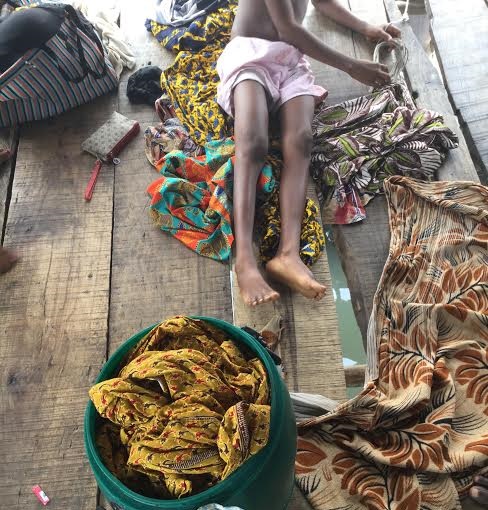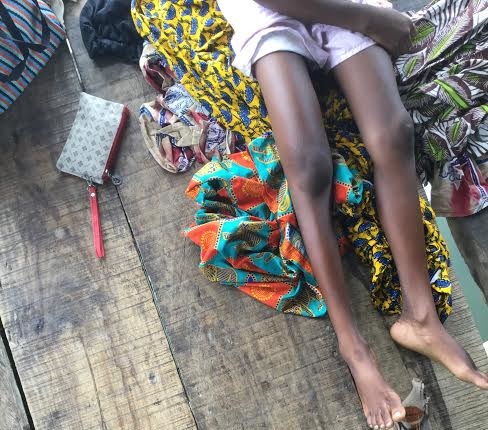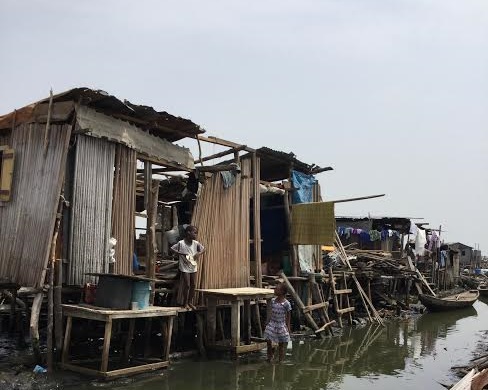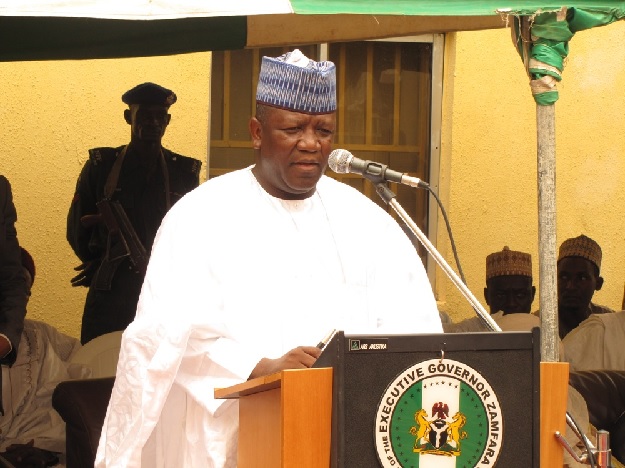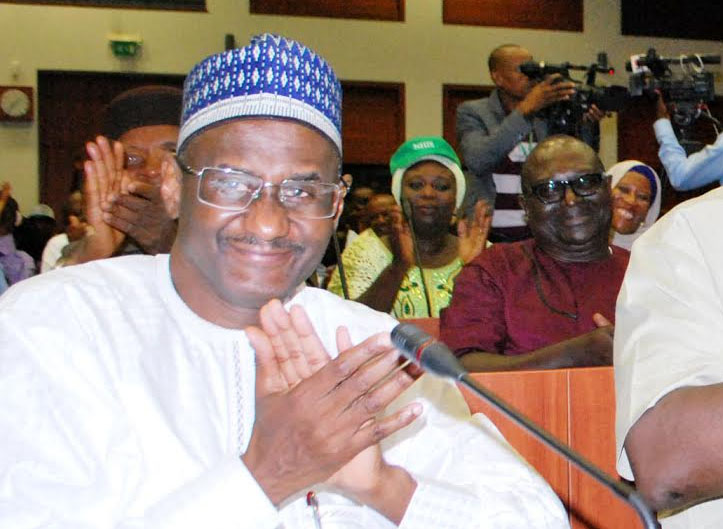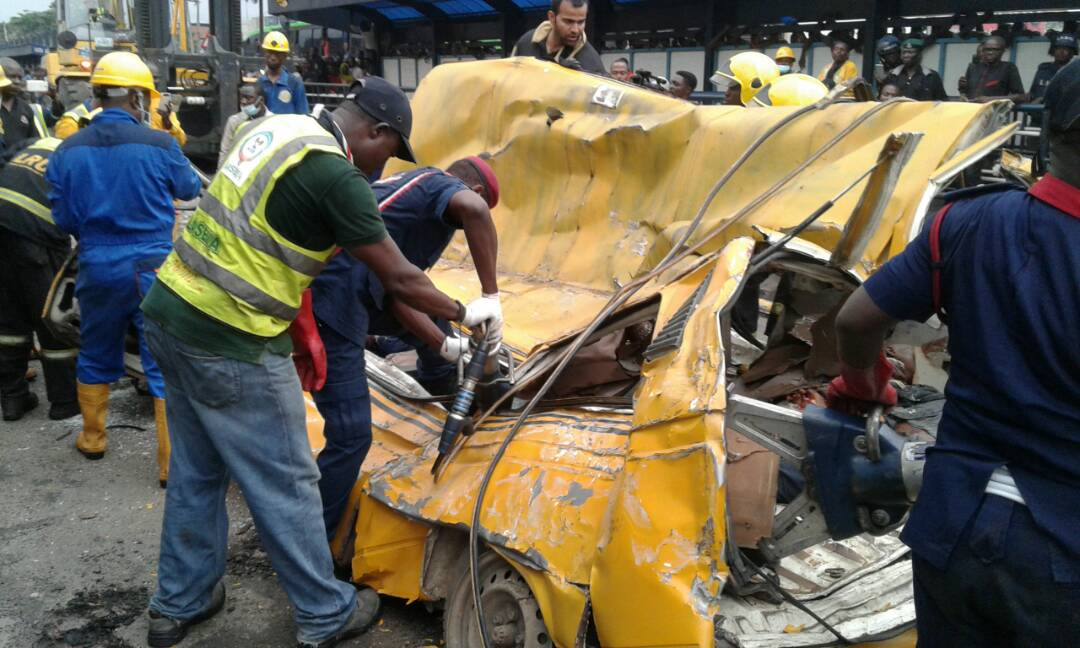Otodo Gbame is now a world totally removed from its former self where shanties were held steady by bamboo sticks and fish traps peeped out of the Lagoons.
The once lived in community has now been replaced by the fast construction of what is looking like a luxurious estate.
It is now devoid of its people, over 30,000 of them who are now stranded, mostly homeless or squatting with relatives who live in other slums around Lagos.
Advertisement
“What happened is not believable, I was born there, that is my father’s home,” Hassan says pointing towards a particular direction.
I WAS READY TO DIE
“My only crime is that I am poor. Look at me, I am ashamed. My wife is with my children in her people’s place. I was ready to fight, to die there, after all, they have killed so many of our people.”
Daniel Aya and Avonda Elijah are two of 11 people who died as a result of the brutality of both security officers and suspected thugs contracted to demolish the community to pave way for the structure that is now in that community – “a luxury housing estate from the ashes of homes of 30,000 fishermen,” Justice and Empowerment Initiative (JEI), a not-for-profit organisation that has worked extensively with the community, said.
Advertisement
Megan Chapman, co-director of the organisation, said the figure might be more because there have been reports of other missing people.
There is now a struggle to ensure that over 30,000 people get settled in homes, Chapman tells this reporter.
She said the community members were now scattered in over 16 slum communities across Nigeria.
Advertisement
Families have been divided, livelihood lost and people dead since 2016 when the Lagos state government and the royal family of Elegushi launched a chain of demolitions eventually leading to the evacuation of the entire residents of the community. The tales from the former residents of the community are of woes, of living from hand to mouth, of uncertainty.
A BAD SITUATION MADE WORSE
The community was already a poor one built with bamboo sticks on top of the water. Terrible infrastructure – tattered makeshift kitchens, no decent toilets or bathrooms and no proper waste disposal system. The children went to schools with poor infrastructure failing, getting their education in an uncomfortable setting.
Chapman said rather than protect, provide and restructure a community already in need, the government engaged in gross human rights violation furthering impoverishing the people.
She said the government had not solved any problem and only succeeded in changing the location of the slum as the people will just go elsewhere to settle since they must live.
Advertisement
“What they (government) has done is just moved the slum to another place,” she says.
Chapman did not accept the security concerns which the Lagos government cited as its reason for demolishing the community. She said corrupt police officers were actually the cause of failed security measures.
Advertisement
She added that the community had vigilante groups who provide security, but rather than prosecute an alleged criminal who is taken to a police station, corrupt officers would accept bribe to release them.
Chapman believes the government should have upgraded the area, created better infrastructure and designed a prototype for affordable houses that would have biofil toilets – toilets that don’t need water and process wastes so that they are not harmful when released.
Advertisement
Now, the community members have no homes. The residents say all they have are memories of their dignity in their personhood and their independence.
I LOST IT ALL
Josephine Dinakpo narrated how she lost everything she had in the November 2016 demolitions.
Advertisement
“I normally go out to the market to buy things that I sell to the members of the community,” Dinakpo said.
“That very day I went to the market as usual, by the time I came back, I saw my children running helter sketter. We were not told that there would be war or that the government will be coming to fight the people of Otodo Gbame community. They destroyed everything even the items I bought from the market.
“God saved me because I didn’t loose any of my children.”
Dinakpo spoke of the crisis with anguish in her eyes and even a reluctance to relive the memories.
“They (police) just started shooting everywhere, forcing us to enter into canoes, if we tried to retrieve anything, they would immediately put fire to the building. It was terrifying,” Dinakpo told the reporter through a translator as she spoke only in her native Egun language.
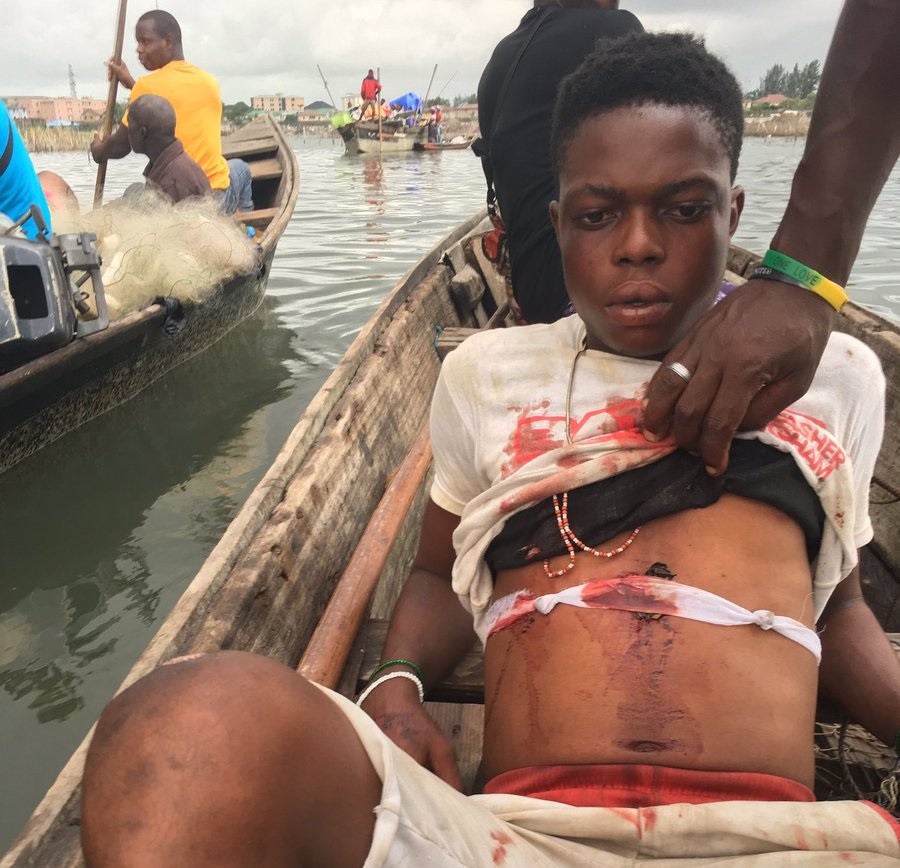
For her, the worst part of the demolition is the disruption of what was her stable life in the midst of poverty.
Dinakpo says she is constantly distraught. She tells this reporter of how she scraped a living for her family from her petty trading before the demolition; but how it had become routine and familiar that her life had been manageable.
Today, if Dinakpo lived in familiar poverty while in the slum, her life, as she describes it now, is a complete misery.
She currently squats with relatives in a confined space in a community called Sogunro, which is as blighted as Otodo Gbame. She has no independence and is is acutely aware of the discomfort she causes her hosts. Her children can no longer go to school as their schools, shanties, were destroyed along with other buildings in the community.
Dinakpo can hardly feed her children and currently owes food vendors so much money they don’t want to sell to her on credit again. She says going to school is currently a dream she doesn’t know how it will come to be.
Dinakpo is also very worried about one of her daughters whose leg is swollen. The girl sits on the floor, unable to move, tieing knots on her wrapper and staring into space.
“When they came to demolish, we started running and she fell down. He leg has been swollen since then and we can’t take her to the hospital,” she narrated.
WHAT CAN JOURNALISTS DO?
Dansu Hunpe, 62 year old traditional ruler – Baale of Otodo Gbame community, with eyes unsettled and a firm reluctance to speak, spoke about his dwindling hope to get justice.
He told this reporter that he was losing faith and reconciling to fate. “We have been talking to journalists since, what has happened?” he asked me.
“We have been talking to journalists since, what has happened?” he asked.
“We have gone to court, still nothing. The government will not listen to the court, so what do we do?”
The residents of what used to be Otodo Gbame took the Lagos state government to court and got a restraining order stopping the eviction.
The order was flouted with the state government insisting that the community was a hazardous one.
GOVERNMENT DEFENDS ITS ACTION
Just after another round of demolitions in March, Steve Ayorinde, the Lagos state commissioner for information, had accused Otodo Gbame residents of perpetuating unsanitary conditions.
“The Otodo Gbame community is one of the 39 claimant communities that had commenced action to enforce their fundamental rights pursuant to Fundamental Rights (Enforcement Procedure) Rules 2009 before Onigbanjo. J of Lagos Division of the High Court of Lagos State,” he said in a press release.
“The leave granted to enforce their rights was tantamount to an order of status quo ante bellum on the parties, which amongst other things required that the claimants do not take any action within the area after it was destroyed by fire.
“The undisputed fact is that Otodo-Gbame was engulfed by fire that razed down the entire community in November 2016, which rendered the area uninhabitable.
“It is unacceptable for them (Otodo Gbame dwellers) to return to the area or to erect shanties and perpetuate unsanitary and environmentally dangerous conditions, hence, the need for the government to maintain order and public safety.”
Chapman dismissed Ayorinde’s statement as excuses the government is churning “to justify what they are really doing which is grabbing the land.”
“What they are doing is taking the land and it is valuable land, so that is the incentive that is driving them to treat human beings with such callousness.”
The government had also described the place as an illegal settlement.
“The settlement in Otodo Gbame is illegal, without any title or appropriate government approval. #OtodoGbame,” the Lagos state government monitoring team had tweeted in the wake of the uproar following the demolitions.
But Hunpe says he does not understand what that means.
“I was born here. I am 62 years now, that’s how long I have been in Otodo Gbame. Our grandfathers lived there, they were fishermen,” he said.
Otodo Gbame settlers have lived in the community for a long time, Hunpe says, nearly 200 years when they migrated from Badagry as fishermen.
FROM PRISON TO COURT
Humpe also said he had been arrested several times since the demolitions started on November 7, 2016.
“They arrested me and I was locked up in Ilasun police station. They took me out of Ilasun police station and I was taken to Panti and from Panti to Yaba court. From that court, I was taken to Ikoyi prison where I spent two weeks.
“By the time I was released, they had already burnt my houses and my community.”
“Some of our people whose houses were not burnt, we moved in with them, so when they saw that we were there, they came with caterpillars again this year and destroyed everything.”
“I now squat somewhere in Ikorodu,” he says adding that he currently faces seriously and has lost his traditional means of livelihood – fishing.
THE END OF OTODO GBAME
April 9 marked the final existence of Otodo Gbame. Despite court orders preventing further demolitions and evacuations, security officials on the orders of the state, stormed into the communities as the people got set for the day, and chased them into the Lagoons.
“There were about fifty police officers and men of about two or three different task forces,” Andrew Maki, co-founder of JEI, who was present during the final evacuation, said.
.
“They were firing tear gas and there were gunshots. They came into the canoes that people ran into and started firing tear gas again.”
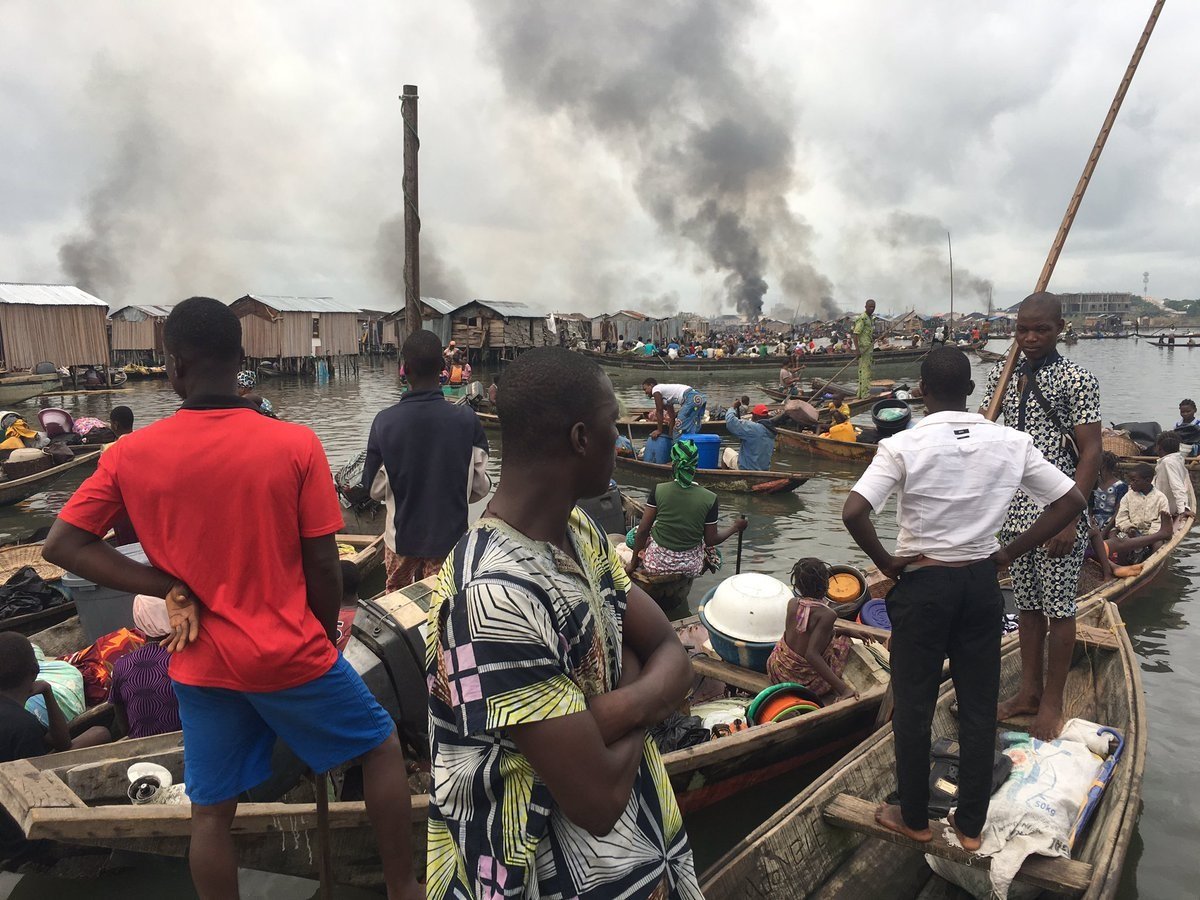
“The police entered boats and were pursuing them farther into the lagoon and continued to fire tear gas, these men on land were shooting guns,” he says
JEI vowed to follow the court process to a conclusion that will amount to justice for the people of Otodo Gbame.
And on June 22, a lifeline seemed to have emerged after Justice S.A Onigbanjo gave a final judgement, declaring the evictions without adequate notice and resettlement to be cruel, inhuman, degrading treatment and in violation of the right to dignity enshrined in section 34 of the Nigerian constitution.
But the government says it has no intention to resettle the residents and announced in the media that it has appealed the judgement, which it described as an error “encouraging illegal shanties and crimes such as bunkering, kidnapping and armed robbery”.
Chapman advocated for the resettlement of over 30,000 homeless people. She says she has not received any notification of the Lagos state government’s appeal of judgement and only read it in the papers.
Chapman says that even if the government is appealing the judgement, it must resettle the people of Otodo Gbame, and refrain from further demolitions of other waterfront settlements as the court initially ordered.
POVERTY NOT A CRIME
Victoria Ibezim, a lawyer and convener of Spaces for Change, says the Otodo Gbame residents have committed no crime except for being poor.
“We tend to forget that poor people have needs just like everyone else. The have aspirations, have dreams and also want to overcome. The recognition of their humanity is yet to be seen particularly on the part of the state,” she said to this reporter,” she says.
“Many of the children, for instance, have been so traumatised, some have lost their parents while others have their families disintegrated in the sense that the father is somewhere, the mother is somewhere else and the children in another place.
“Many of the children are out of school, some have slept on boats for days under the inclement weather. The trauma is too much. These people need rehabilitation, they need to be compensated for their properties that has been destroyed in a gruesome manner.”
She said the government’s explanations for the demolition of the community were just excuses.
“Excuses like these are very familiar. In 1990, when the Lagos state government demolished Maroko, they said that the place was unfit for human habitation and environmental sanitation was one of the reasons. Maroko is now known as the Lekki peninsular.”
“They simply took over the land and gave it to rich people. So the excuses about sanitation, crimes, security, city beautification, flood control, road construction, those are very familiar excuses; they are not the real reasons.
“ If you look behind some of the pictures that we displayed there, you will see some luxurious homes in the background that are springing up, that gives you an indication of what will happen to these places when it is cleared.”
Who will save the poor from “oppressors”? Where would help come from?
This project was done with the support of Code for Africa
Add a comment
